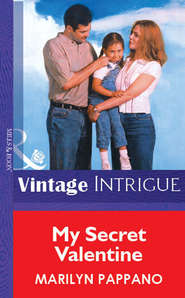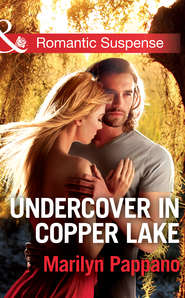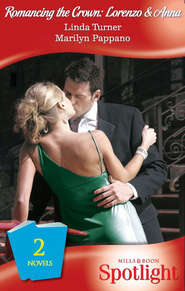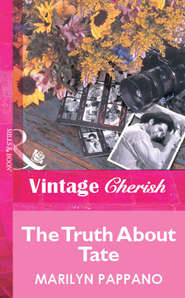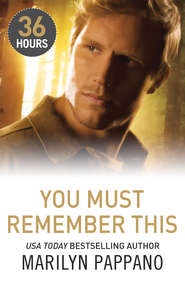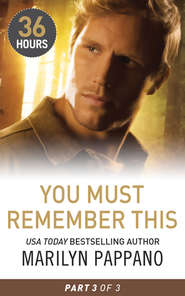По всем вопросам обращайтесь на: info@litportal.ru
(©) 2003-2025.
✖
You Must Remember This Part 2
Автор
Год написания книги
2019
Настройки чтения
Размер шрифта
Высота строк
Поля
He didn’t open his eyes or turn his head. “In a house on Poplar.”
“What did the kids do with it?”
“I guess it belongs to them. No one’s living there. That’s where she was found, you know.”
She knew. She’d filled in the gaps in the gossip with the newspaper clippings she’d brought home Thursday. It had happened on a Friday evening last June. The night of one of the most intensive rainstorms in Colorado history. Olivia had left the office early and gone home to get ready for Hal’s wedding to Randi Howell at the ski lodge. When she didn’t show up, Josie Reynolds—now Stryker—had gone looking for her and found her unconscious on the floor in her kitchen, suffering from an apparent heart attack. It was nearly a week later that the real mechanism of death had been discovered: the injection of pure potassium into her system that caused her heart to stop.
“I wonder if there’s anything at the house that might help us.”
Finally he did look at her. “It’s a fair bet that Hal isn’t going to let us in to find out. I don’t know about Eve.”
“Well, if they say no, couldn’t we just go, anyway? Just for a look around?” As his expression turned disbelieving, she realized what she had suggested and flushed. “Just go, anyway” was a sorry euphemism for breaking in, and even if they did just look around and didn’t take anything, it was still wrong.
It would be easy, though. They would go at night, of course, to diminish the risk of being seen. Martin could probably pick the back door lock, or maybe there was a window that could be easily opened. People in small towns were notorious for trusting their neighbors, leaving locks undone or settling for substandard security. They could take flashlights, close the drapes, make a leisurely search of the premises and be gone with no one the wiser.
And what if it wasn’t so easy? If one of Olivia’s neighbors suffered with insomnia? If someone called the police? Even if she and Martin could convince them that they had simply been looking for clues, Hal Stuart would have her fired for sure. If they couldn’t convince the police, she would have a tough time finding another job with a criminal record.
“Forget I said that,” she mumbled. She had too much to lose on what would probably be a fruitless quest, anyway. If the police hadn’t found anything of value in the house, it wasn’t likely she and Martin would, either.
“Don’t get caught up in this. Playing cop can be fun, but don’t ever forget that that’s all you’re doing—playing.” He rolled to his feet and offered her a hand up. When she was standing, he didn’t immediately release her but turned her to face the mountains, then moved close behind her, his arms around her shoulders, his body warm and solid against hers. “You should see this place in winter, when there’s snow everywhere. The trees get so heavy with snow and ice that the branches break. You can walk through the woods and hear the cracking. Everything’s cold and clean, and the sky turns the clearest, sharpest blue.”
“I’d like to see that,” she said softly. Maybe next winter, if he was still here, he would show her. Maybe next winter he would have no interest in her. Maybe she would have to be satisfied with this: snow on the distant peaks, slopes covered with a thousand shades of green and dotted with massive outcroppings of stone and, nearer, the delicate colors of wildflowers.
For a time he held her, and she let him. She didn’t lean into him, didn’t snuggle closer, but stood motionless, arms at her side, and savored the feel of him.
“Juliet?”
“Hmm.”
“Want some lunch?”
He could have asked a dozen questions that wouldn’t have disturbed her warm, enveloping sense of well-being—Are you comfortable? Do you like this? Can I touch you? Can I kiss you? Something so mundane as lunch, though, disrupted the coziness of their position. So did the sudden growl of her stomach.
His chuckle stirred her hair. That was all it was—not a brush of his cheek against it. Not the touch of his mouth to it. Just the rush of breath when he laughed. “I’d call that a big yes.” He released her and started to the ground.
Before following, she turned for one last look. She would come back here in the summer and the fall. She would bring a blanket, a picnic and a wish for an artist’s talent to capture the scene.
Martin jumped the last few feet to the ground, then offered her a lift down. For a moment his hands lingered at her waist. For a moment his gaze met hers and she thought he was going to kiss her. She was wrong. He released her and turned toward the car. Stifling a disappointed sigh, she went after him.
They ate lunch in town, then swung by the church so he could borrow the tools necessary to install the locks. She had wondered, when he’d brought it up that morning, if she wouldn’t be better off calling a locksmith, but, in spite of his teasing, Martin knew what he was doing. She helped, if standing there handing him an occasional tool could be considered much help. When he was finished, he gave her the new keys, then went out into the backyard to take a look around. “You need a dog.”
“A dog.” She said it as blankly as if he’d just advised buying a machine gun. Never in her life had she considered owning a dog—or any other kind of creature, for that matter. The lack of pets was a long-standing Crandall family tradition. “Why in the world would I want a dog?”
“For protection.”
“I don’t want a mean dog.”
“He doesn’t have to be mean, just noisy. No burglar wants to deal with a barking dog.”
Was that just common sense or did he know from experience? She pushed the thought from her mind. “I don’t want to deal with a barking dog.”
“Well, of course he’s not going to be barking all the time. You’ve got a great yard for him, and he could keep you company in the evenings, and he’d keep an eye on both you and your house.”
She would prefer that Martin keep her company in the evenings and look out for her safety, but, of course, he wasn’t always going to be there. But a dog just wasn’t her idea of a companion.
She looked over the yard. It was great—fenced all around, not too wide but deep, with lush grass that would require mowing soon. It was one of the reasons she’d bought the house, and she had big plans for it—shrubs along the back fence, bulbs and perennials on one side, more bulbs and annuals on the other, a brick patio with room for a grill, a table and chairs and maybe even a fountain close to her bedroom so she could open the windows at night and sleep to the sound of bubbling water.
She didn’t have room in those plans for a dog who would poop on the lovely grass, dig up the flower beds and probably pee in the fountain, all while annoying both her and the neighbors with its incessant burglar-warning bark.
Considering the matter closed, she opened the screen door and waited. “Are you ready to get back to work?”
They went inside, finished the job of sorting, then merged their two sets of papers. “Now what?”
He sprawled in the chair beside her. “When you checked the other night to see if Roy Jr. had a listed phone number—can you do it the other way?”
“You mean a reverse search? Put in a number and ask for a name? Sure.”
“Why don’t you take the most recent phone bills and check her long distance calls? I’ll start with the bank records.”
She went online and pulled up the site she needed. Checking Olivia’s long distance calls for the last year of her life wasn’t much of a task. Business calls had been made at the office on the city’s bill, and personal calls were few and far between.
At least until the March preceding her death. Once a week for three months there was a call, usually between 7:00 and 8:00 p.m., lasting an hour or more, to a number in Miami Beach, Florida. Curious, she typed in the number, hit the enter key and waited. “You ever hear of a Jason Scott?”
Martin shook his head.
“Olivia called him regularly for three months. The last call was the week before she died.”
“Call him.”
She picked up the cordless phone from the china hutch and dialed the number. “And say what? ‘Hi, you don’t know me, but I was just wondering what your connection to Olivia Stuart was?’ As if any sane person would actually tell me.”
He grinned. “If he’s a red-blooded man, he will, if for no other reason than to hear you talk some more.”
On the second ring, a recording came on. The number you have dialed has been disconnected…. She went back to the website and tried a search for Jason Scott in the Miami area. There were a number of hits, but the addresses were different. “So what do we do? Call every one and ask if he’s the Jason who used to live at that address?”
When he shrugged, she printed the listings, then began dialing. It didn’t take long to hit a dead end. After the last wrong number, Martin took the phone and placed one call. Eve Redtree had never heard of Jason Scott and knew of no reason her mother would place so many calls to Miami.
“Maybe Scott is a private investigator and she had hired him to find Roy Jr.,” Juliet mused. “Maybe he is Roy Jr. Maybe when he ran away from here, he knew his mother would try to find him, so he changed his name.”
“She left him more than fifty thousand dollars. Don’t you think, if she knew he’d changed his name or had known where to find him, she would have mentioned it to her attorney, her children or the insurance company?”
“Probably. Anything interesting in her bank statements?”
“Maybe. She wrote a couple of large checks to Hal, one a year before she died and one five months later. Repaying a loan?”
“Or maybe making one.”
He shook his head. “Hal’s a lawyer. He makes decent money. He’s not married, has no kids and no obligations besides himself. Why would he need to borrow twelve thousand dollars from his widowed mother, who certainly wasn’t rich herself?”






